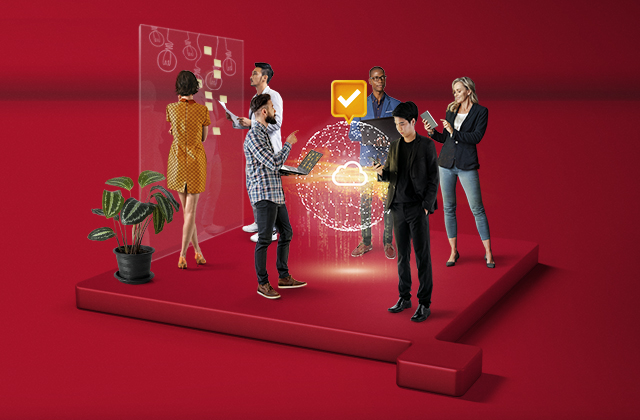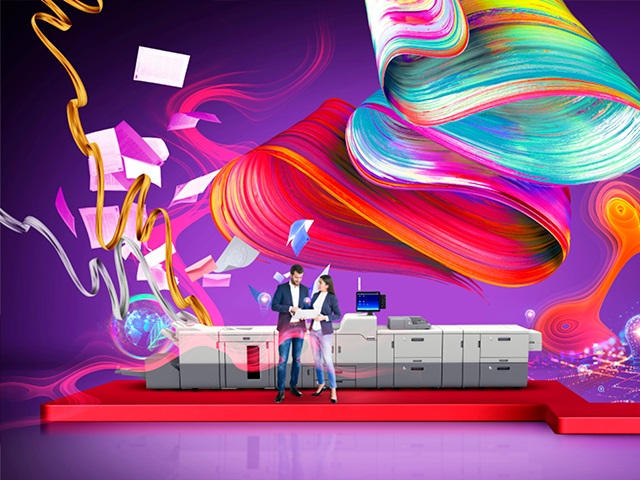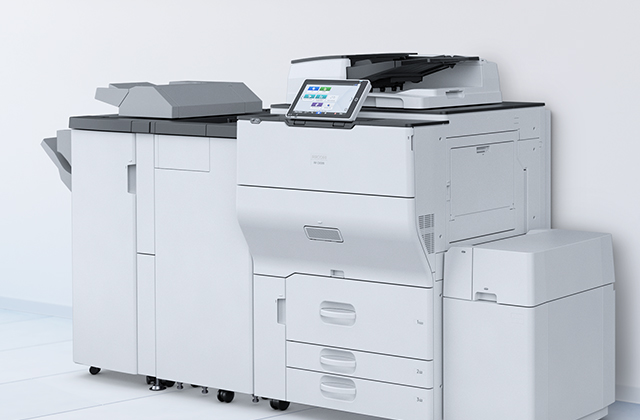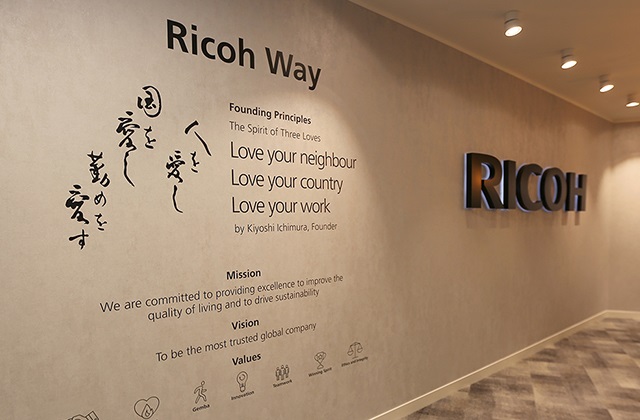Three tips for growing a mid-sized business in a world of change
By Javier Diez-Aguirre, Vice President, Corporate Marketing, CSR & Environment, Ricoh Europe
Ricoh Europe, 04 April 2017 – Businesses have never faced such complex political, economic, social and digital forces as they do today. For example:
- In the UK, Theresa May has formally announced the country’s intention to leave the European Union
- Gartner predicts 20.8 billion connected devices in use by 20201
- Organisations face a constant tide of new laws and regulation, such as, the General Data Protection Regulation (GDPR) set to come into force next year
In short, businesses of all sizes are being tasked with quickly getting to grips with a new reality. As our World of Change research report explains, disruption is here to stay. But success in turbulent times depends on the ability to anticipate the long-term benefits of change.
In particular, the mid-market is acutely aware of today's wider economic, political and social pressures. The engine room of Europe’s economy, mid-sized businesses (MSBs) account for 75,000 companies across the continent2 and provide over 30% of all revenue.
Although MSBs are hugely ambitious, the vast majority report barriers preventing them from reaching their full potential. These include complex and costly regulation, difficulty in attracting top talent and in sourcing the right technology. As a result, the current uncertainty makes what seems like an already difficult path to growth almost impossible.
But are MSB leaders overlooking one of their best assets for growth – their people? Despite the changes happening around them, their employees are feeling extremely positive and settled in the roles. Only 8% expect to change job and just 12% believe they will have fewer career opportunities in 2017.
According to the research we commissioned, mid-market employees are confident that digital disruption will result in their company being in a stronger position by the end of 2017 than it is now. They are clearly up for the challenge and want to overcome the barriers standing in their way.
Setting employees up to meet these challenges starts with what technology they have at their disposal. In fact, 62% believe their business should do more to use new technology and processes. With that in mind, here are three areas business decision makers should focus on:
- Digital processes - Replacing traditional time-intensive paper-based workflows with digital solutions frees-up employees to focus on adding greater value to the business and serving customers. For example, many smaller and medium-sized banks still send documents, such as mortgage and loan applications, around the organisation manually. Using Branch Paperless services, staff can quickly digitise important information and enter into electronic approval processes, with the added bonus of improved security and the ability to share with multiple colleagues at the same time.
- Mobile working - Today’s increasingly mobile workforce wants to embrace the benefits flexible working creates. Cloud technology enables remote colleagues to easily collaborate in real-time and securely share documents via a wide range of devices. Revamping technology doesn’t mean mobile working needs to be restricted to just outside the office. In the healthcare industry, solutions such as eRecord Mobile enable the capture of patient records from anywhere inside the hospital. This eliminates the need to manually type notes as staff use tablets to access data on the go.
- Connectivity - Helping employees across the business to share ideas and develop them together is of great value in times of change. Collaboration increases employee productivity, fosters a cohesive culture and generates an innovative spirit. A simple place to start is with how employees communicate. High-performing visual communication services make it possible to save time and money that would otherwise be spent on travel and accommodation for meetings. Turn-key collaboration room services remove the hassle of deploying such solutions. These can include the full design and furnishing of a room and installation of visual communications equipment, providing an optimal space for employees to meet and collaborate.
For more information, visit www.ricoh-europe.com/thoughtleadership.
1 Gartner - Gartner Says 6.4 Billion Connected "Things" Will Be in Use in 2016, Up 30 Percent From 20152 Figure for number of mid-sized businesses in Europe provided by M-Institute, July 2016
|Om Ricoh|
Ricoh styrker digitale arbeidsplasser ved å bruke innovative teknologier og tjenester som gjør det mulig for enkeltpersoner å jobbe smartere fra hvor som helst.
Med kunnskap og organisatoriske evner opparbeidet gjennom sin 85-årige historie, er Ricoh en ledende leverandør av digitale tjenester, informasjonsadministrasjon og utskriftsløsninger designet for å støtte digital transformasjon og optimalisere forretningsytelsen.
Ricoh Group har hovedkontor i Tokyo og har store virksomheter over hele verden, og produktene og tjenestene deres når nå kunder i omtrent 200 land og regioner. I regnskapsåret som ble avsluttet mars 2022, hadde Ricoh Group et verdensomspennende salg på 1758 milliarder yen (ca. 14,5 milliarder USD).
For mer informasjon, vennligst besøk www.ricoh-europe.com
empty© 2022 RICOH COMPANY, LTD. Alle rettigheter forbeholdt. Alle refererte produktnavn er varemerker for deres respektive selskaper.
Mediekontakt:
Ricoh Europe PLC
Jack Gibson
E-post: media@ricoh-europe.com
Hjemmeside: www.ricoh-europe.com













